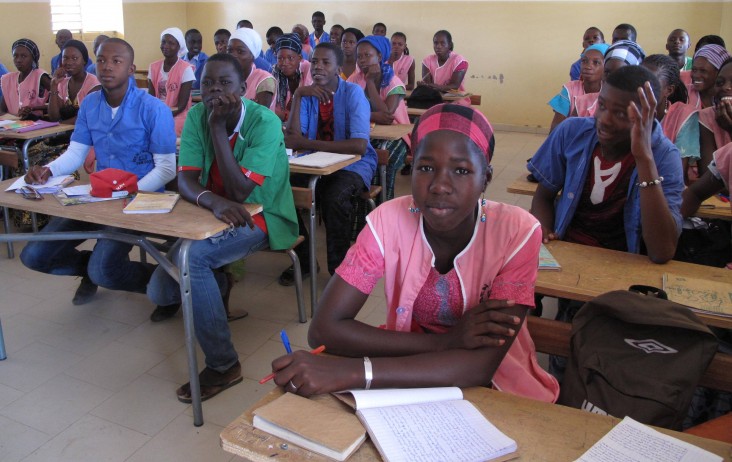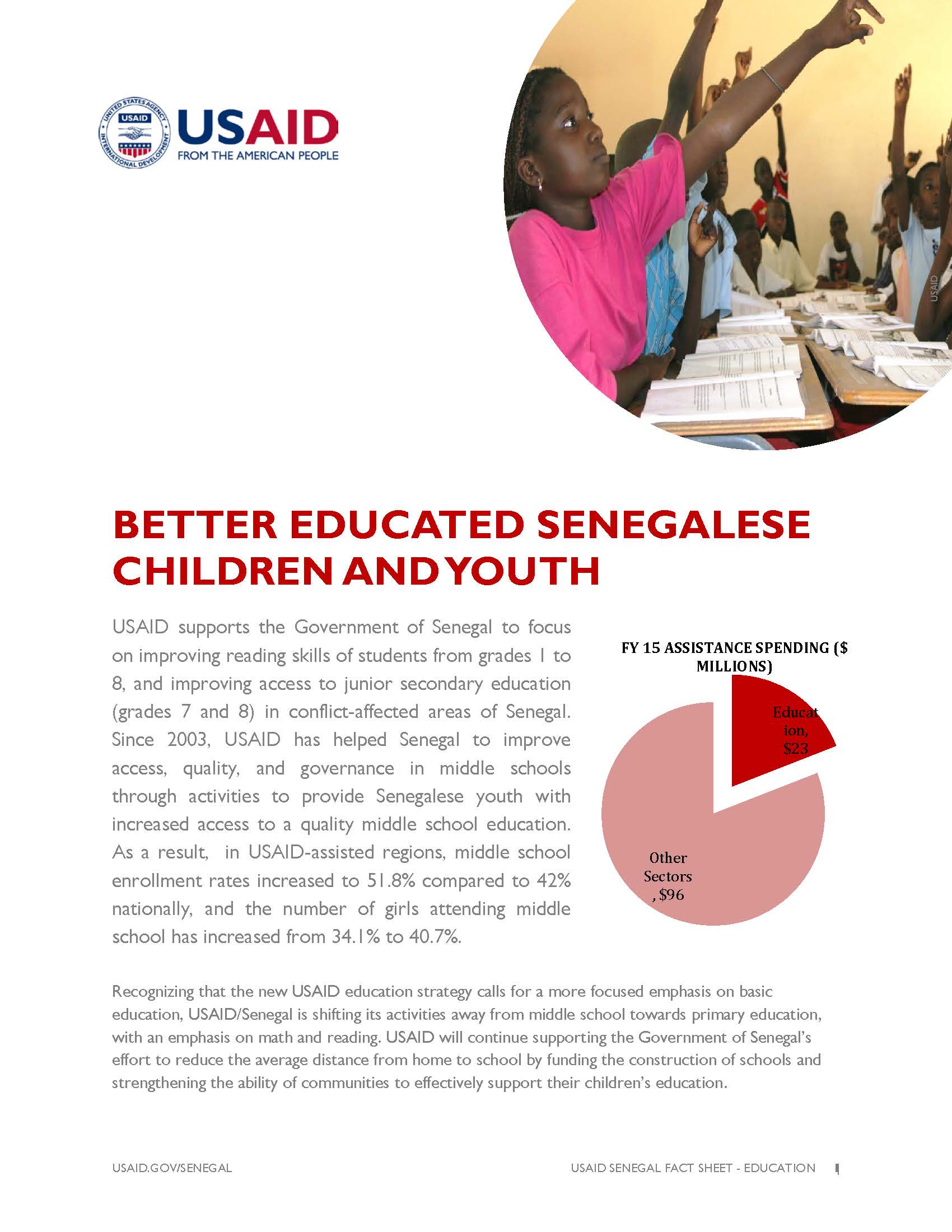
In the past decade, Senegal has made strides in achieving universal access to education, increasing primary school enrollment rates from 69.8 percent in 2000 to 92.5 percent in 2009. Despite these accomplishments, more needs to be done to ensure all Senegalese children receive 10 years of quality basic education, especially girls and vulnerable children.
Education quality is severely constrained by a lack of trained teachers, a shortage of instructional resources and a challenging school environment. As a result, many Senegalese children have insufficient skills for their grade level, especially in important areas such as reading and mathematics.
Working with the government of Senegal, teachers, parents, students and private businesses, USAID has:
- Helped 500,000 children attend school, 300,000 of whom are girls
- Built or restored more than 100 middle schools
- Donated over 3 million textbooks
- Provided internet access for 20,000 students
We have worked with the Ministry of Education to establish higher-quality standards for education and a national curriculum that is sensitive to gender, ethnicity, and social standing. In line with USAID’s Education Strategy, we are scaling up our program with the Ministry of Education to improve reading and math learning outcomes of students in early primary grades nationwide. These skills are the foundation for future learning and essential for creating an effective, productive, and engaged population.
Youth and Workforce Development
Since 2008, we have supported Senegal’s efforts to provide out-of-school youth with basic education, vocational training, and life skills. We are now aiming to help an additional 50,000 street children attend school. Because these students need extra attention and support, we are establishing a new partnership with local government and grassroots organizations to increase inclusiveness and support networks.
Education in Conflict and Crises
IMPROVING EDUCATION IN SENEGAL ![]() (pdf - 166k)
(pdf - 166k)
USAID’s middle school programs target the conflict-affected Casamance region to increase school enrollment and retention in conflict environment. These programs help children attain basic literacy and numeracy skills and reduce the number of out-of-school youth potentially drawn to violent movements.









Comment
Make a general inquiry or suggest an improvement.